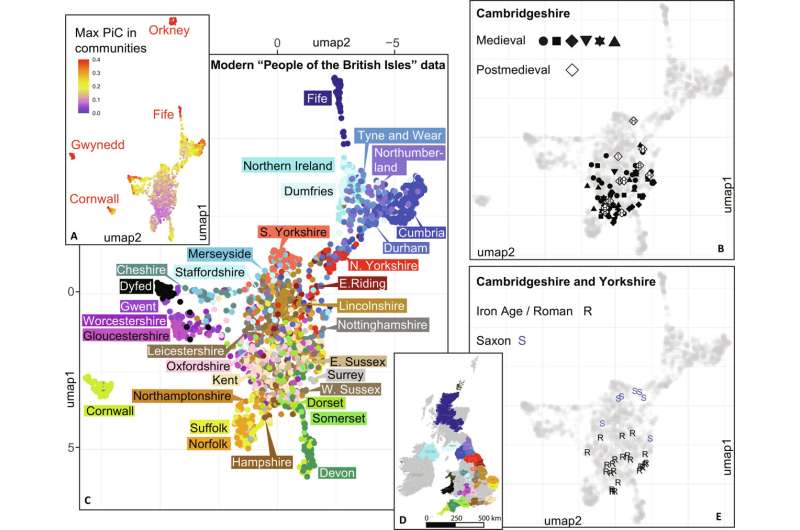January 18, 2024 report
This article has been reviewed according to Science X's editorial process and policies. Editors have highlighted the following attributes while ensuring the content's credibility:
fact-checked
peer-reviewed publication
trusted source
proofread
Genetic study offers little evidence of Black Death having selective impact on genetic variation in England

A team of archaeologists, geneticists and pathologists affiliated with a host of institutions across Europe, working with one colleague from the U.K. and another from the U.S., has found little evidence of the Black Death causing genetic variants to arise in affected populations.
In their study, reported in the journal Science Advances, the group compared the genes of people living before and after the plague in the same area to see if they could find any genetic changes.
The Black Death was a plague (caused by Yersinia pestis, a bacteria carried by wild rodents) that affected people living in Europe and parts of Africa and Asia in the middle of the 14th century. Researchers believe the plague killed approximately 25 million people, with some countries seeing 65% of their population lost.
Because of the duration of the plague and the large number of deaths, some in the infectious community have suggested genetic variations may have arisen, giving some people more protection against infection. In this new effort, the research team tested this theory by conducting a genetic study of people living in Cambridgeshire, England, over the years 1000 to 1850, comparing the genetic profiles of 275 people who lived in the county both before the plague arrived and after it had dissipated to see if they could spot any changes.
To ensure the integrity of their samples (retrieved from cemeteries), the researchers used genetic samples from people from all walks of life living around the county. This provided new insights into the social makeup of the county, including relatedness between groups. They also found introductions into the population from migrants from several Nordic countries. What they did not find was any genetic variation that might be attributed to the Black Death.
The research team points out that their work does not rule out the possibility of the plague having some selective impact, it only suggests that if it did happen, it was likely in ways that they were not able to identify, such as via multiple pathways—or that it happened in other populations.
More information: Ruoyun Hui et al, Genetic history of Cambridgeshire before and after the Black Death, Science Advances (2024). DOI: 10.1126/sciadv.adi5903
Journal information: Science Advances
© 2024 Science X Network



















